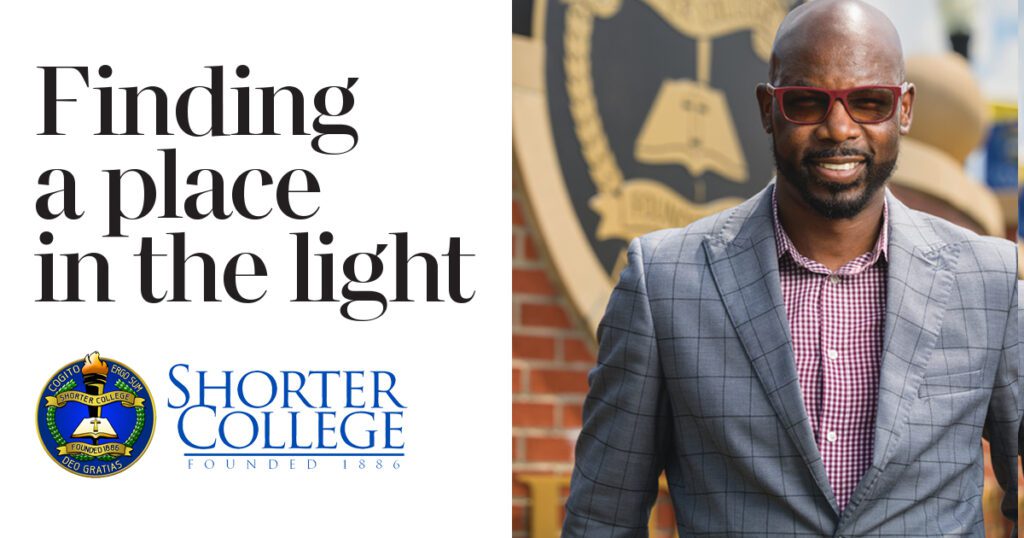01 Jul 2023 Finding a place in the light
By Dwain Hebda
At about 400 students, Shorter College may never be mistaken for the biggest college in Arkansas. But an initiative of the private, faith-based liberal arts school, one of the country’s 105 historically Black colleges and universities, is making a positive impact that is reaching far beyond the historic North Little Rock campus.
Shorter has built solid academic programs serving people who have faced the challenges of past mistakes and who are now looking for a new lease on life. The school’s Anchor Program partners with the Arkansas State Department of Community Corrections, serving individuals in parole and probation programs.
Rick Watson, Shorter’s director of supportive and re-entry services, said the school’s education programs are a key element for individuals building a better life versus reoffending and winding up back inside.

“The recidivism rate in Arkansas is hovering around 50 percent,” he said. “For the people who receive their degree through Shorter College or any college, recidivism drops all the way down to about 13 percent. So that is a really big deal in terms of saving the state thousands and thousands of dollars to house someone in prison, but not only that, it saves thousands of lives and helps families.”
Watson said Shorter College partners with re-entry facilities to provide college instruction to individuals transitioning from prison to society. He said given the background of many students, the educational process offers different challenges from a typical college curriculum.
“A lot of our students are first-time students; they’ve never been to college before,” he said. “Maybe they’re the first person in their family to go to college. We talk to them about school and how college can change their lives and provide hope for their children. Their children see the possibility of going to college and the opportunity there.
“Another thing we do differently than most colleges is to provide wrap-around services. We have services that help people with housing; we can help with employment. We provide a success coach, and that person works with the individual through every step. We also walk them through every single step of the process with the teachers and what to expect. And when they run across problems, we’re there for them.”
The program, which has been around since 2015, also benefits from Shorter College’s standing in the community, which can trace its roots to 1886. That longevity, as well as the college’s roots in the African Methodist Episcopal Church, have helped keep it relevant among its target audience.
“The thing that sets us apart is that Shorter College is one of the few colleges that’s actually in the urban heart of the community,” Watson said. “People can relate to us because they see the college every day. They know that the college knows the community because it’s been in the community for so many years.
“The second thing is, we were one of the first to have a college inside the prison. Some students can get their degree while they’re in prison, while others who were unable to complete their degree can finish it with us when they get out. We were one of the very first colleges to do that.”
Talking to Watson, it is immediately clear how personally he takes the mission of the school’s educational programs. He referenced his growing up as motivation to help as many people as possible reach beyond their past mistakes.
“I’m the first person in my family to ever go to college,” he said. “I’m super proud and excited to be a part of the re-entry community because there have been so many people around me over the years that I’ve seen have these troubles.
“A lot of our students come from dark places, so when they become a light by going to school, they’re going to light up a whole community. Just one person can have a huge ripple effect on a family. The cousin that never even knew what college was sees his cousin going or his brother going or sister going. It changes people’s lives. We have that ripple effect on the community.”
- First in, last out - June 30, 2024
- Person of the Month: Rojay Moore - June 2, 2024
- Conway couple called to serve foster children, families - March 10, 2024











